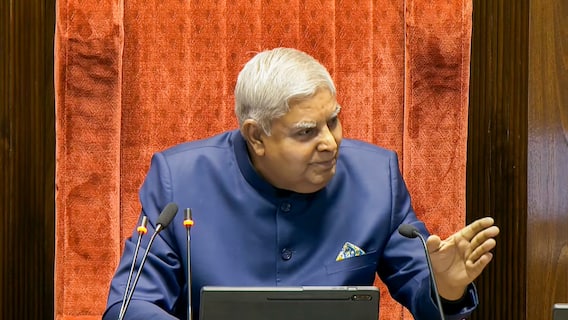SII Launches India's First Indigenously Made Cervical Cancer Vaccine 'CERVAVAC': All About The Vaccine
CERVAVAC, India's first indigenously developed cervical cancer vaccine, has demonstrated a robust antibody response against all targeted HPV types, and in all dose and age groups.

The Serum Institute of India (SII) launched CERVAVAC, India's first indigenously developed quadrivalent human papillomavirus (qHPV) vaccine, on Tuesday, January 24, 2023, on the occasion of India's National Girl Child Day. January is also Cervical Cancer Awareness month. CERVAVAC is a vaccine against cervical cancer.
Adar Poonawalla, the CEO of the Pune-based pharmaceutical firm, tweeted that Amit Shah, India's Home Minister, and Prakash Kumar Singh, Director, Government and Regulatory Affairs, SII, launched CERVAVAC on Tuesday.
On the occasion of India's National Girl Child Day and Cervical Cancer Awareness Month, @SerumInstIndia is pleased to launch the first made-in-India HPV vaccine by the hands of our Hon'ble Home Minister Shri @AmitShah Ji. @PrakashKsingh7 pic.twitter.com/jbxs5Emq9Y
— Adar Poonawalla (@adarpoonawalla) January 24, 2023
In India, the second most frequent cancer among women aged 15 to 44 years is cervical cancer. Most cervical cancers are caused by the human papillomavirus, and are sexually transmitted.
CERVAVAC has demonstrated a robust antibody response against all targeted HPV types, and in all dose and age groups. The response is nearly 1,000 times higher than the baseline.
The scientific completion of the vaccine was announced in September, 2022.
What Are HPV Vaccines?
HPV vaccines protect against infection caused by human papillomaviruses (HPV), which represent a group of more than 200 related viruses. Of these, more than 40 are spread through direct sexual contact. As many as two HPV types cause genital warts, and about a dozen HPV types can cause certain types of cancer, namely cervical, oropharyngeal, vulvar, vaginal, penile, and anal cancers.
According to the US National Institute of Health's (NIH's) National Cancer Institute, three vaccines that prevent infection with disease-causing HPV are currently being marketed in many countries throughout the world. These are Gardasil, Gardasil 9, and Cervarix.
Gardasil is a quadrivalent vaccine, Gardasil 9 is a nonavalent vaccine, and Cervarix is a bivalent vaccine. This means that Gardasil, Gardasil 9, and Cervarix contain four, nine, and two strains of HPV, respectively.
Gardasil prevents infection against HPV types 6, 11, 16, and 18, and Cervarix prevents infection against HPV types 16 and 18.
Gardasil 9 prevents infection against HPV types 6, 11, 16, 18, 31, 33, 45, 52, and 58.
About 70 per cent of cervical cancers are caused by HPV types 16 and 18.
An additional 10 to 20 per cent of cervical cancers are caused by the high-risk HPV types 31, 33, 45, 52, and 58.
How Does A Cervical Cancer Vaccine Work?
The SII's tetravalent or quadrivalent HPV vaccine includes L1 virus-like particles (VLPs) of serotypes 6, 11, 16, and 18. A quadrivalent vaccine works by stimulating an immune response against four different antigens, such as four different viruses or other microorganisms. For instance, Gardasil is a quadrivalent vaccine that protects the body against infection with four different types of HPVs. Meanwhile, Gardasil 9 is a nine-drug vaccine which provides protection against HPV types 6, 11, 16, 18, 31, 33, 45, 52, and 58.
The L1 protein is sufficient to form virus-like particles, which are molecules that mimic viruses but are not infectious. These particles are an effective way of creating vaccines against diseases caused by HPVs, hepatitis B virus, among others.
Why Are HPV Vaccines Required?
HPV vaccines are important because they could reduce the impact of cervical cancer and other cancers caused by human papillomaviruses. More than 95 per cent of cervical cancer is caused by sexually transmitted HPVs. This is the fourth most common type of cancer in women globally, with 90 per cent of these women living in low-and middle-income countries.
There are different strains of HPVs which spread through sexual contact. They are associated with most cases of cervical cancer.
Gardasil 9 is the HPV vaccine approved by the US Food and Drug Administration and can be used for both men and women.
If the vaccine is given before a female is exposed to the virus, most cases of cervical cancer can be prevented.
According to Mayo Clinic, males who are vaccinated against the type of HPV associated with cervical cancer may help protect females from the virus by possibly decreasing the risk of transmission.
Check out below Health Tools-
Calculate Your Body Mass Index ( BMI )
Trending News
Top Headlines






































